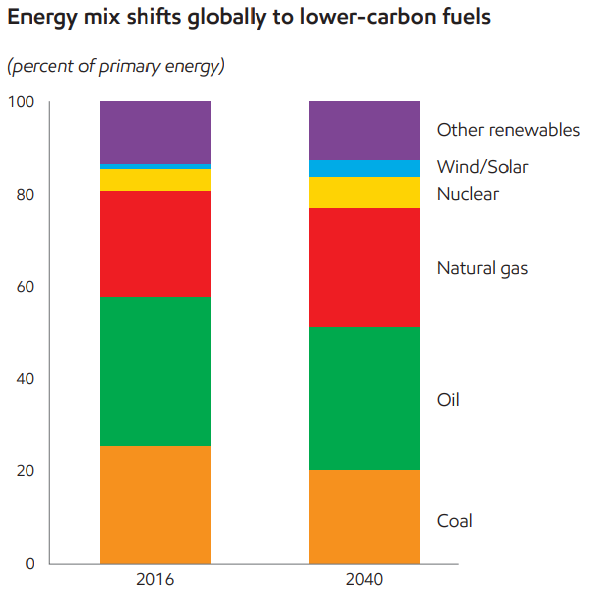[Jan-May 2017 added. I found re-reading some of the old stuff rather interesting. I'm often rather forceful in response to comments. Do forgive me, and do push back.]
Carbon
* ‘Moore’s law’ for carbon would defeat global warming?
* Moon Jae-in orders shutdown of old coal-fired power plants.
Carbon Tax
* Yet more carbon tax and The ETS is stupid, part n + 1 [2016/04].
* How to decarbonize? More free market!
* A vision for Article 6 of the Paris Agreement?
* A proportionate response to Trump’s climate plans? and A response to a response to a proportionate response.
* U.S. Needs a Robust Carbon Tax, not an Exxon Carbon Tax?
* The conservative case for carbon dividends.
Deaths
* Science advances one funeral at a time - Robert Carter - and thoughts about influence on field.
* Oh, and we were Gone / Kings of Oblivion- David Bowie.
* Another funeral advances science - Pattern recognition in physics.
* Derek Parfit, Ex-Philosopher.
Economics
* Has Nordhaus changed his mind?
* The Great Persuasion: Reinventing Free Markets since the Depression.
* FT: The Big Green Bang: how renewable energy became unstoppable.
* The Great Persuasion: Reinventing Free Markets since the Depression.
* FT: The Big Green Bang: how renewable energy became unstoppable.
Exxon
* Yet more Exxon drivel [2016/04].
* #exxonlied [2016/06].
* More Exxon, yawn [2016/07].
* Maura Healey ha ha ha [2016/12].
* He clearly recognizes that public service sometimes comes at a cost - Tillerson.
* Climate models have proven extremely skillful in predicting the warming that has already been observed… - Tillerson / Mann / Prediction.
* He clearly recognizes that public service sometimes comes at a cost - Tillerson.
* Climate models have proven extremely skillful in predicting the warming that has already been observed… - Tillerson / Mann / Prediction.
Evil Arch Climate Uber Villains
Hansen
Law
* Taking Property Rights Seriously: The Case of Climate Change.
Mottoes
* Mundus vult decipi, ergo decipiatur.
Mottoes
Nutters
* A Falconer Uppermost - Ned Nikolov and Karl Zeller.
* Centre for Climate Change Economics and Policy? - Richard Tol, David Rose.
* Observed Arctic sea-ice loss directly follows anthropogenic CO2 emission? - Dirk Notz and Julienne Stroeve.
* More Lindzen, if you can bear it.
* Who were those masked men? - Lindzen and friends.
* The East is Red.
* I am an Arctic researcher. Donald Trump is deleting my citations?
* Woy and the Black Helicopters.
* Straight outta the lab, down the stairs and into the bucket of jellied eels.
Philosophy
* Prior discovery - what is truth and why do we think we know it?
* Who were those masked men? - Lindzen and friends.
* The East is Red.
* I am an Arctic researcher. Donald Trump is deleting my citations?
* Woy and the Black Helicopters.
* Straight outta the lab, down the stairs and into the bucket of jellied eels.
Philosophy
* Prior discovery - what is truth and why do we think we know it?
Politics
* Pootinism.
* Trump's EPA pick will make Obama regret his environmental overreach?
* Swept with confused alarms of struggle and flight / Where ignorant armies clash by night - on Trump.
* Trump Calls The Majority Who Voted Against Him Enemies And Losers In New Year’s Message?
* Donald trump, ha ha ha.
* Perspective: It’s Not a War on Science.
* Swept with confused alarms of struggle and flight / Where ignorant armies clash by night - on Trump.
* Trump Calls The Majority Who Voted Against Him Enemies And Losers In New Year’s Message?
* Donald trump, ha ha ha.
* Perspective: It’s Not a War on Science.
Public Good
Science
* Analysis* of Pope Francis’ Encyclical Laudato Si?
* The polar amplification asymmetry: role of Antarctic surface height.
* Arctic stronghold of world’s seeds flooded after permafrost melts?
* Economist: Farewell to the Arctic.
* Antarctic iceberg crack develops fork from Aunty.
Trade
* Aleppo: UN vs private traders.
Wiki
* The making of a Wiki-Lie: Chilling story of one twisted oddball and… so on.
Wiki
* The making of a Wiki-Lie: Chilling story of one twisted oddball and… so on.
 ATTP has a post on
ATTP has a post on 





